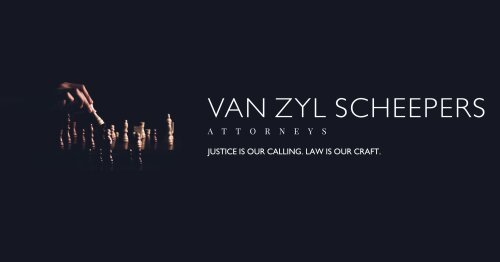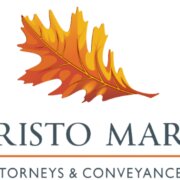Best Collaborative Law Lawyers in Stellenbosch
Share your needs with us, get contacted by law firms.
Free. Takes 2 min.
Free Guide to Hiring a Family Lawyer
List of the best lawyers in Stellenbosch, South Africa
About Collaborative Law in Stellenbosch, South Africa
Collaborative Law in Stellenbosch, South Africa, provides an alternative dispute resolution method focusing on cooperation between parties without the need for court intervention. It is particularly popular in family law cases, such as divorce or child custody disputes. In this law process, both parties hire lawyers trained in collaborative law, committing to resolving their issues in a non-adversarial setting. This legal practice supports the community's value of maintaining relationships and finding mutually beneficial solutions.
Why You May Need a Lawyer
There are several common situations where you might consider seeking legal help in collaborative law:
- Divorce or Separation: If you and your spouse decide to divorce or separate amicably, collaborative law can help settle property division, child custody, and support issues.
- Child Custody and Support: When parents wish to make decisions jointly regarding their children's upbringing without court mandates.
- Business Disputes: If you're involved in a business partnership or contract dispute that both parties want to resolve amicably.
- Wills and Estate Planning: To create or modify a will with the input of all interested parties without contestation.
Local Laws Overview
Stellenbosch is governed by South African law, and a few notable aspects of collaborative law relevant to the area include:
- Voluntary Participation: Both parties must agree to enter the collaborative process willingly, aiming for a mutually agreeable outcome.
- Legal Representation: Each participant has their own lawyer trained in collaborative law to ensure fair representation and guidance.
- Full Disclosure Requirement: Parties must disclose all pertinent information, including financial details, to ensure an equitable agreement.
- No Court Intervention: The process is designed to avoid court proceedings. If the collaborative process fails, the involved lawyers must withdraw, and the parties will have to seek new legal representation if they choose to go to court.
Frequently Asked Questions
What is the main advantage of collaborative law?
The main advantage is the maintenance of amicable relationships and control over the outcome by the parties involved, which can lead to faster and more satisfactory resolutions.
Can collaborative law be used in all types of legal disputes?
While primarily used in family law, it can be adapted for any type of dispute where the parties are committed to working together toward a resolution.
How is collaborative law different from mediation?
Mediation involves a neutral third-party facilitator, whereas in collaborative law, each party has a lawyer, and both legal advisors work together to reach a solution.
What happens if the collaborative process fails?
If the process fails, both collaborative lawyers must withdraw from the case, and the parties must hire new representation to continue in court.
Is collaborative law legally binding?
Once an agreement is reached and documented, it can become legally binding if a court makes an order based on the agreement or if the parties draft a contract.
How long does the collaborative law process last?
The duration varies depending on case complexity and parties' cooperation; however, it is generally quicker than court proceedings.
Are the sessions confidential?
Yes, one of the key features of collaborative law is confidentiality, encouraging open communication and full disclosure.
What expenses are involved in collaborative law?
Legal fees and costs for any additional experts (e.g., financial advisors, child specialists) involved in the process. It is generally less expensive than lengthy court battles.
Can outcomes from collaborative law be customized?
Yes, outcomes can be creative and specifically tailored to the needs and interests of both parties, which is a unique strength of collaborative law.
Is the outcome enforceable in court?
Yes, if the agreement is formalized legally, it can be enforced as any other legal contract or court order.
Additional Resources
For more information, these resources may be helpful:
- South African Association of Collaborative Practitioners: Provides support and information for those interested in collaborative law.
- Law Society of South Africa: Offers resources for finding trained collaborative lawyers in Stellenbosch.
- Family Justice Courts: For those seeking assistance in formalizing agreements made through the collaborative process.
Next Steps
If you are considering collaborative law for your legal needs, consider the following steps:
- Research Collaborative Lawyers: Gather information about lawyers in Stellenbosch who specialize in collaborative law.
- Schedule a Consultation: Meet with a potential lawyer to discuss your case and see if they're a good fit for your needs.
- Prepare Relevant Documents: Collect all necessary documents related to your legal issue for efficient discussions.
- Commit to the Process: Be prepared to communicate openly and engage in the collaborative process willingly.
Taking these steps can help you proceed with confidence and clarity regarding collaborative law in Stellenbosch, South Africa.
Lawzana helps you find the best lawyers and law firms in Stellenbosch through a curated and pre-screened list of qualified legal professionals. Our platform offers rankings and detailed profiles of attorneys and law firms, allowing you to compare based on practice areas, including Collaborative Law, experience, and client feedback.
Each profile includes a description of the firm's areas of practice, client reviews, team members and partners, year of establishment, spoken languages, office locations, contact information, social media presence, and any published articles or resources. Most firms on our platform speak English and are experienced in both local and international legal matters.
Get a quote from top-rated law firms in Stellenbosch, South Africa — quickly, securely, and without unnecessary hassle.
Disclaimer:
The information provided on this page is for general informational purposes only and does not constitute legal advice. While we strive to ensure the accuracy and relevance of the content, legal information may change over time, and interpretations of the law can vary. You should always consult with a qualified legal professional for advice specific to your situation.
We disclaim all liability for actions taken or not taken based on the content of this page. If you believe any information is incorrect or outdated, please contact us, and we will review and update it where appropriate.











